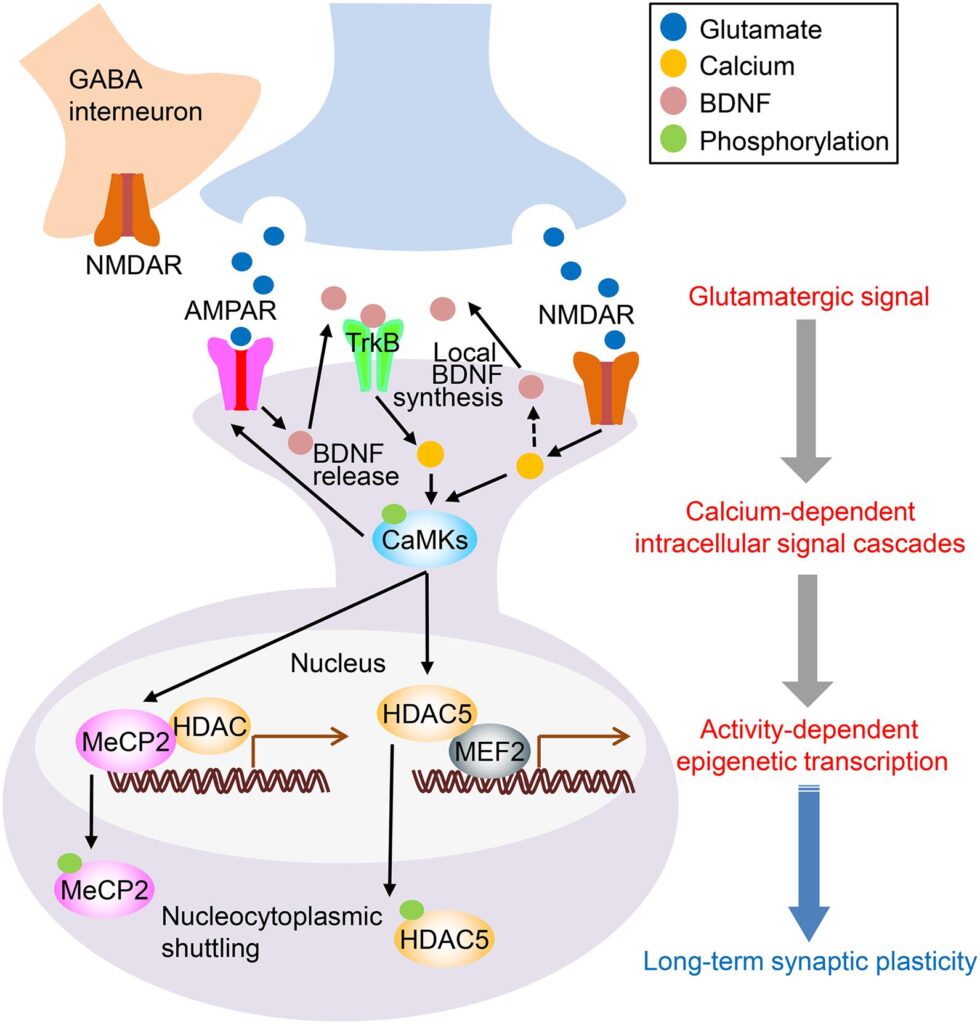
The Rise of Ketamine Therapy for Mental Health in Quebec
The growing interest in ketamine therapy for treatment-resistant depression in Quebec is an innovative approach that offers hope to those who have struggled with conventional treatments, addressing a critical gap in our mental health care system.
Understanding Treatment-Resistant Depression and Its Impact
Treatment-resistant depression is a severe form of depression that doesn’t respond to standard therapies. In my medical practice, I’ve seen how it can significantly impact a person’s quality of life, relationships, and overall well-being. Many patients come to me feeling hopeless after trying multiple medications and therapies without success.
The impact of treatment-resistant depression extends beyond the individual, affecting families, workplaces, and communities. It’s a complex condition that requires innovative approaches, which is why the emergence of ketamine therapy has been so crucial in Quebec’s mental health landscape.
How Ketamine Therapy Emerged as a Promising Solution
Ketamine therapy has gained traction in Quebec due to its rapid and effective results in treating depression. Unlike traditional antidepressants that can take weeks to show effect, ketamine often provides relief within hours or days.
The introduction of ketamine-assisted psychotherapy in Quebec has opened new doors for patients who previously felt they had exhausted all options. This treatment combines the neurobiological effects of ketamine with targeted psychotherapy, creating a powerful tool for breaking through the barriers of treatment-resistant depression.
How Ketamine Therapy Works for Depression
Ketamine therapy represents a groundbreaking approach to treating depression, especially for those who haven’t responded to traditional treatments. As a physician specializing in mental health, I’ve seen ketamine’s remarkable ability to alleviate depressive symptoms quickly and effectively, often within hours of administration.
The Science Behind Ketamine’s Antidepressant Effects
Ketamine works differently from conventional antidepressants. While most antidepressants target serotonin or norepinephrine, ketamine primarily affects the glutamate system in the brain. This unique mechanism of action is why ketamine can be effective for treatment-resistant depression.
In my clinical experience, I’ve observed that ketamine can rapidly reduce depressive symptoms and suicidal ideation. This fast-acting relief is a crucial advantage, especially for patients in acute distress who can’t wait weeks for traditional antidepressants to take effect.
Ketamine’s Impact on Glutamate Receptors and Neural Pathways
Ketamine’s antidepressant effects stem from its interaction with glutamate receptors, particularly NMDA receptors. By modulating these receptors, ketamine triggers a cascade of events that lead to the formation of new synaptic connections in the brain. This process, known as synaptogenesis, is believed to be key in reversing the neural deficits associated with depression.
Furthermore, ketamine appears to enhance brain plasticity, allowing for the formation of new neural pathways. This increased plasticity may explain why ketamine can help patients break free from rigid thought patterns and behaviors associated with depression. Neuroplasticity can open up new possibilities for healing and personal growth in patients who previously felt stuck.

Ketamine Treatment Options in Quebec
In Quebec, we offer diverse ketamine treatment options to address the unique needs of patients with treatment-resistant depression. As a physician specializing in mental health, I’ve seen how these different approaches can be tailored to individual circumstances, ensuring optimal care for each patient.
Ketamine Infusion vs. Intramuscular Injection
Ketamine infusion therapy involves administering the medication intravenously over a period of time. This method allows for precise control of the dosage and immediate adjustments if needed. In my experience, infusions often provide a smoother onset of effects and can be particularly beneficial for patients with severe symptoms.
Intramuscular injections, on the other hand, offer a quicker administration process. The ketamine is injected directly into a muscle, typically the upper arm or thigh. This method can be preferable for patients who are uncomfortable with IV lines or require a shorter treatment session. Both methods have shown efficacy in treating depression, and the choice often depends on individual patient factors and preferences.
At-Home Ketamine Therapy: A Growing Trend
At-home ketamine therapy is an emerging option that’s gaining traction in Quebec. This approach involves prescribing sublingual ketamine tablets or lozenges that patients can take in the comfort of their own homes. It’s particularly beneficial for those who have difficulty traveling to clinics or prefer a more flexible treatment schedule.
However, at-home therapy requires careful patient selection and monitoring. Field Trip Health provides comprehensive preparation, including virtual consultations and detailed instructions for at-home administration. We also ensure ongoing support and follow-up to monitor progress and address any concerns. While this option offers convenience, it’s crucial to maintain the same level of care and safety as in-clinic treatments.
Learn more about our at-home ketamine therapy services here.
The Ketamine Therapy Process in Quebec Clinics
Field Trip Health has refined the ketamine therapy process in Quebec clinics to ensure the best outcomes for patients with treatment-resistant depression. This comprehensive approach involves several key stages, each crucial for maximizing the benefits of ketamine-assisted psychotherapy.
Initial Consultation and Assessment
The journey begins with a thorough initial consultation. During this session, we personally review the patient’s medical history, current symptoms, and previous treatments. This step is vital to determine if ketamine therapy is appropriate and safe for the individual.
We also conduct a comprehensive mental health assessment, which may include standardized depression scales and psychological evaluations. This helps us establish a baseline and tailor the treatment plan to the patient’s specific needs.
Preparation for Ketamine-Assisted Psychotherapy
Once we determine that ketamine therapy is suitable, we focus on preparation. This involves educating the patient about the treatment process, potential effects, and what to expect during sessions. We also discuss the importance of setting intentions for the therapy.
We work closely with patients to develop personalized treatment plans, which may include a combination of ketamine infusions or injections and psychotherapy sessions. We also address practical matters such as arranging transportation and post-session care.
The Ketamine Treatment Session Experience
During the ketamine treatment session, we create a calm, supportive environment. Patients receive the prescribed dose of ketamine, either through infusion or intramuscular injection. Throughout the session, we closely monitor vital signs and provide constant support.
The psychotherapy component occurs during the ketamine experience, allowing patients to explore their thoughts and emotions in a new light. As their physician, I guide this process, helping patients navigate their experiences and insights.
Post-Session Integration and Follow-Up Care
After each session, we conduct integration sessions to help patients process their experiences and apply insights to their daily lives. This may involve discussing new perspectives, setting SMART goals, or addressing any challenges that arose during treatment.
Follow-up care is crucial for long-term success. We schedule regular check-ins to monitor progress, adjust treatment plans if necessary, and provide ongoing support. This comprehensive approach ensures that patients receive the full benefits of ketamine therapy in their journey towards mental wellness.
Benefits of Ketamine Therapy for Treatment-Resistant Depression
As a physician specializing in mental health, I’ve witnessed the transformative effects of ketamine therapy for patients with treatment-resistant depression. This innovative treatment offers several significant benefits that set it apart from traditional antidepressants and therapies.
Rapid Relief from Depressive Symptoms
One of the most remarkable aspects of ketamine therapy is its ability to provide rapid relief from depressive symptoms. In my clinical experience, many patients report a significant improvement in their mood within hours or days of their first treatment. This quick onset of action is particularly crucial for individuals struggling with severe depression or suicidal thoughts.
Unlike conventional antidepressants that can take weeks to show effects, ketamine often produces noticeable changes after just one or two sessions. This rapid relief can be life-changing for patients who have been battling depression for years without success.
Long-Term Efficacy and Sustained Improvement
While the initial rapid relief is impressive, what’s equally important is ketamine’s potential for long-term efficacy. Many of my patients have experienced sustained improvement in their depressive symptoms even after completing their initial course of treatment.
Ketamine therapy appears to help “reset” the brain, promoting neuroplasticity and the formation of new neural connections. This biological change can lead to lasting improvements in mood, cognitive function, and overall quality of life. I’ve seen patients who were previously unable to work or engage in social activities gradually return to fulfilling lives after undergoing ketamine treatment.
Safety Considerations and Potential Side Effects
Field Trip Health will always prioritize patient safety and transparency about potential side effects. While ketamine treatment has shown remarkable efficacy for treatment-resistant depression, it’s crucial to understand both short-term effects and long-term safety considerations.
Short-Term Side Effects of Ketamine Treatment
During ketamine infusions or intramuscular injections, patients may experience temporary side effects. These typically occur during or shortly after the treatment session and usually resolve within a few hours. Common short-term effects include dizziness, mild nausea, and changes in perception. Some patients report feeling disconnected from their surroundings or experiencing mild visual distortions.
It’s important to note that these effects are generally well-tolerated and managed in our clinical setting. We closely monitor vital signs and provide constant support throughout the treatment process. In my experience, most patients find these temporary effects manageable, especially when weighed against the potential benefits for their depression.
Long-Term Safety Profile of Ketamine Therapy
The long-term safety profile of ketamine therapy is an area of ongoing research. Based on current clinical and experimental data, low-dose ketamine used in a controlled medical setting appears to have a favorable safety profile. However, it’s essential to approach this treatment with careful consideration and medical supervision.
Field Trip Health conducts thorough initial assessments and ongoing monitoring to ensure patient safety. We carefully screen for any contraindications and adjust treatment plans as needed. While long-term studies are still in progress, the potential benefits of ketamine therapy for treatment-resistant depression often outweigh the risks for many patients who have not found relief through other methods.
Combining Ketamine with Other Treatment Modalities
Combining ketamine therapy with other treatment modalities can significantly enhance outcomes for patients with treatment-resistant depression. This integrated approach allows us to address multiple aspects of mental health simultaneously, leading to more comprehensive and lasting improvements.
Integrating Ketamine Therapy with Traditional Psychotherapy
Ketamine-assisted psychotherapy is a powerful combination that I’ve seen yield remarkable results. The neuroplasticity induced by ketamine creates a window of opportunity for more effective psychotherapy. During this period, patients often find it easier to process traumatic experiences, challenge negative thought patterns, and develop new coping strategies.
In my practice, we typically schedule psychotherapy sessions immediately following ketamine treatments. This timing allows us to capitalize on the increased neuroplasticity and openness that ketamine often produces. Patients frequently report deeper insights and more rapid progress in their therapy during this time.
Complementary Therapies to Enhance Ketamine’s Effects
Beyond traditional psychotherapy, I’ve observed that certain complementary therapies can further enhance the benefits of ketamine treatment. Mindfulness meditation, for instance, can help patients maintain the mental clarity and emotional balance often experienced after ketamine sessions. We encourage patients to incorporate mindfulness practices into their daily routines.
Additionally, lifestyle modifications play a crucial role. I work with patients to improve their sleep hygiene, establish regular exercise routines, and adopt a healthy diet. These changes support overall brain health and can help prolong the positive effects of ketamine therapy. In some cases, we also incorporate art therapy or music therapy, which can provide additional avenues for emotional expression and healing.
Finding a Reputable Ketamine Clinic in Quebec
As a physician specializing in mental health care, I understand the importance of finding a reputable ketamine clinic in Quebec. Choosing the right provider is crucial for ensuring safe and effective treatment for treatment-resistant depression and other mental health conditions.
Key Factors to Consider When Choosing a Ketamine Treatment Provider
When selecting a ketamine clinic, prioritize medical expertise. Look for a facility led by licensed physicians with specific training in ketamine therapy. The clinic should have a team of experienced medical professionals who can provide comprehensive care throughout your treatment journey.
Safety protocols are paramount. A reputable clinic will have strict safety measures in place, including thorough patient screening, continuous monitoring during treatment, and well-equipped facilities to handle any potential complications. They should also follow best practices for ketamine dosing and administration.

Questions to Ask Before Starting Ketamine Therapy
Before beginning treatment, it’s essential to have a clear understanding of the process. Ask about the clinic’s specific treatment protocols, including the number of sessions recommended and the type of ketamine administration they use (infusion, intramuscular injection, or at-home options).
Inquire about the clinic’s approach to integration and follow-up care. A quality provider will offer comprehensive support, including preparation sessions, integration therapy, and ongoing monitoring of your progress. Don’t hesitate to ask about their success rates and how they measure treatment outcomes.
The Future of Ketamine Therapy in Quebec’s Mental Health Landscape
I’m excited about the future of ketamine therapy in our province. The landscape of mental health treatment is evolving rapidly, with ketamine therapy playing an increasingly significant role in addressing treatment-resistant depression and potentially other mental health conditions.
Ongoing Research and Clinical Trials
Quebec is becoming a hub for cutting-edge research on ketamine therapy. As a researcher myself, I’m actively involved in studies examining the long-term efficacy and safety of ketamine for depression. We’re exploring optimal dosing protocols, treatment frequency, and combining ketamine with other therapeutic modalities to enhance outcomes.
Clinical trials are underway at several institutions across Quebec, investigating ketamine’s potential for treating not only depression but also anxiety disorders and PTSD. These studies are crucial for expanding our understanding of ketamine’s mechanisms and refining treatment protocols to maximize benefits while minimizing risks.
Potential Expansion of Ketamine Treatment for Other Mental Health Conditions
While ketamine therapy is currently primarily used for treatment-resistant depression in Quebec, there’s growing evidence supporting its efficacy for other mental health conditions. In my practice, I’ve observed promising results in patients with anxiety disorders, obsessive-compulsive disorder, and PTSD.
As research progresses, we may see ketamine therapy becoming a standard treatment option for a broader range of mental health conditions. This expansion could significantly impact the lives of many Quebecers who have struggled to find relief through traditional therapies. However, it’s important to note that this process will be gradual, ensuring that any new applications are thoroughly researched and proven safe before widespread implementation.
Field Trip Health Quebec also offers alternative treatments for treatment-resistant depression, such as MDMA therapy, Psilocybin therapy, and Neurofeedback therapy (coming soon).
About the Author

Dr. Mario Nucci MD CCFP is a licensed Family Physician with a passion for mental health and the development of new therapies. He is actively engaged in research with a faculty associate professorship at Northern Ontario School of Medicine, and research collaborations with the University of Ottawa, University of Calgary, Lakehead University, Concordia University and Vancouver Island University.
Dr. Nucci is the founder of Bay and Algoma Health Centre in 2019, a walk-in and addiction medicine clinic. He founded the Canadian Centre for Psychedelic Healing in 2019, now operating as Field Trip Health, providing cutting edge mental health care in Toronto, Montreal, Vancouver, Ottawa, Hamilton, Kitchener-Waterloo, Thunder Bay, Sault Ste. Marie, and at-home.